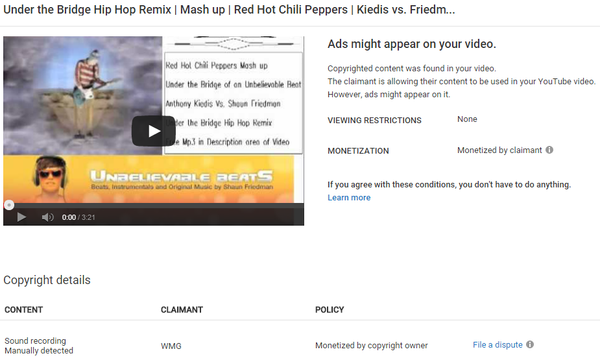It was never about Fruity Loops for me, and never will be about Fruity Loops for me.
I was born in 1981. My father produced jingles for commercials, put Cleveland on the map, excelled at jazz piano, and had a state of art studio in 1985. I was immediately mesmerized by the sounds programmed with a floppy disk and the Yamaha DX-7 Keyboard.
Music is an art of expression. I have given my blood, sweat, and tears to this entity called music. It is the universal language and relates to both me and every human being around the world.
It was never about a DAW for me. It was about CREATIVITY. It was never about the Pro Tools vs. Cubase battle for me. That was simply a vessel to create a final product. It was never about Ableton. It was never about Digital Performer. It was never about the never ending battle in forums and in person. It was never about Fruity Loops - the stigma of a DAW that is immediately dismissed as "not worthy." It was about finding the easiest and most user friendly process for my type of production. In my case, that usually means starting with drums, adding a baseline, and then adding many parts of percussion and additional harmonies.
I ask you this: If you write a letter to someone, does it matter if it comes from Hotmail, Gmail, AOL, or another type of email program? No. Rather, it is about the content within the email and how it makes you FEEL.
Music means creating something from nothing. Like a painter with a paintbrush on a blank canvas.
I ask the world: Why be so obsessed with the Pro Tools vs. other software programs? I guess I can "sort of" understand those who say "these kids never learned an instrument." I can't really speak to that because I learned the piano and drums by ear, and then took that knowledge into the digital domain. I guess you can call me a hybrid of the analog and digital worlds. I am grateful that my dad "showed me the ropes" so to speak, using midi keyboards like Korg and Kurzweil, and manually playing in each harmony or drum pattern using a keyboard.
I ran into somebody today who claimed I was "stuck in box" by using the FL Studio Program. I would argue that any thinking that claims I am stuck in box is exactly that: Stuck in a box. For me, it has NOTHING to do with the software DAW so to speak. Yes, the software FL Studio is good for me because it allows me to sequence quickly. But the underlying message I am trying to communicate is this: The most important part about composing music is NOT the software that you use. Certainly it can help in the process, and you should find the DAW that works best for you, but it is all about your own creativity. It's about how you add each section of your song, the harmonies you incorporate, and the way the melody or baseline makes you FEEL.
Music makes you FEEL. It makes you FEEL when you hear it through a radio. It makes you FEEL when you are working out and listening to music on your iPOD. it makes you FEEL when you are dancing to music in a club. It PICKS YOU UP when you are feeling down. It motivates you. It connects you. It reminds you. It's your friend. It's the emotion that is indescribable. It is different for each person listening, yet it connects everybody.
As producers, engineers, and composers, it is not about what DAW you use. It's about how you make your audience FEEL. If you can get your message across using Pro Tools, by all means use it. If you like Digital Performer like the famous composer Hans Zimmer, use it. If you like fruity loops, keep at it. If you like Cubase or Ableton, stick with what works.
The main battle comes between each fellow producer. We are supposed to be making music that makes people FEEL. This was never a gimmick for me. I have seen the forums and I have seen the YouTube comments. Why do we have to battle with people that are using different DAWS? We should be encouraging people who are making music, not cutting them down because they use a certain DAW. Just because you use Pro Tools doesn't mean you are better than someone else. Rather, pro tools (in certain cases) may be a crutch to certain people, because they have no real creativity. It's like spraying Febreze instead of really cleaning your carpets: Your house still stinks and the spray is only a cover up. You will be exposed for who you are in due time.
I can create in Pro Tools. I can create in Cubase. I can create in FL Studio. I can create in Ableton. I can create in Digital Pefrormer. I have been multi-tracking since I was 5 years old, using a Casio Sk-8. It was never about a DAW. It was only about creating. I can only shake my head in disbelief when I see or I am part of these arguments, which base themselves upon what DAW you are using, and not WHY you are creating music in the first place. For the LOVE. Not for a gimmick. Not for notoriety. For the love of music and creativity.




